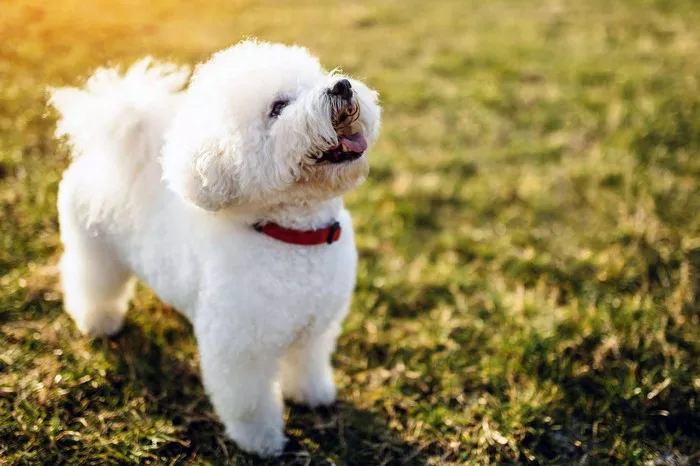The Bichon Frise, a charming and fluffy companion dog, is beloved for its cheerful personality and hypoallergenic coat. One of the most common questions among potential owners is about their lifespan. Understanding how long a Bichon Frise lives—and how to extend those years—requires insight into their health needs, lifestyle factors, and aging process. This article explores the typical lifespan of Bichon Frises, factors influencing longevity, and practical care tips to ensure a happy, healthy life for your furry friend.
Average Lifespan of a Bichon Frise
Bichon Frises typically live 12–15 years, though some may reach 16–20 years with exceptional care. Their lifespan depends on genetics, environment, diet, and preventive healthcare. Smaller dogs generally outlive larger breeds, and the Bichon’s toy size contributes to its relatively long life expectancy.
Life Stages of a Bichon Frise
Puppyhood (0–2 years): Rapid growth and development; requires vaccinations and socialization.
Adulthood (2–5 years): Peak physical and mental health; ideal for training and bonding.
Senior Years (7–10 years): Gradual decline in energy and mobility; regular vet check-ups become critical.
Geriatric Stage (10+ years): Increased vulnerability to age-related diseases; requires specialized care.
Factors Influencing Lifespan
Genetics and Breeding
A Bichon’s genetic background plays a significant role in its longevity. Reputable breeders screen parent dogs for hereditary conditions like hip dysplasia, patellar luxation, and heart disease, reducing the risk of passing these issues to puppies. Avoid “teacup” or unethically bred Bichons, as they often face health complications.
Diet and Nutrition
A balanced diet is crucial for maintaining health. Key recommendations include:
High-quality dog food: Rich in protein, vitamins, and omega fatty acids to support skin, coat, and joint health.
Portion control: Overfeeding can lead to obesity, a major risk factor for diabetes and heart disease.
Avoid harmful foods: Chocolate, grapes, and onions are toxic to dogs.
Exercise and Mental Stimulation
Bichons need 30–60 minutes of daily activity to stay fit and prevent boredom. Activities like walks, puzzle toys, and obedience training help maintain muscle tone and cognitive function.
Preventive Healthcare
Vaccinations: Protect against parvovirus, distemper, and rabies.
Dental care: Brush teeth regularly to prevent periodontal disease, which can shorten lifespan.
Parasite prevention: Monthly flea/tick treatments and deworming.
Regular Veterinary Check-Ups
After age 7, annual exams should include bloodwork, urinalysis, and screenings for thyroid or kidney issues. Early detection of diseases like cancer or diabetes improves treatment outcomes.
How to Extend Your Bichon’s Lifespan
Prioritize Grooming
Their curly, dense coat requires daily brushing to prevent mats and skin infections. Professional grooming every 6–8 weeks helps maintain hygiene and detect lumps or parasites early.
Manage Stress
Bichons thrive on companionship and can develop separation anxiety if left alone frequently. Provide interactive toys and consider a pet sitter for long absences.
Adapt Care for Senior Dogs
Joint support: Glucosamine supplements or orthopedic beds ease arthritis discomfort.
Diet adjustments: Switch to senior dog food with lower calories and higher fiber.
Ramps and non-slip mats: Assist mobility on stairs or slippery floors.
Monitor Aging Signs
Senior Bichons may show:
Reduced activity: More sleep, less interest in play.
Dental issues: Loose teeth or difficulty eating.
Cognitive decline: Confusion or house-training lapses.
Common Health Issues and Prevention
Allergies
Bichons are prone to skin allergies caused by food, pollen, or flea bites. Symptoms include itching and redness. Antihistamines or hypoallergenic diets can help.
Patellar Luxation
A hereditary condition where the kneecap slips out of place. Mild cases are managed with weight control; severe cases may require surgery.
Bladder Stones
High-protein diets can increase risk. Provide plenty of water and feed prescription diets if recommended by a vet.
Conclusion
The Bichon Frise’s lifespan of 12–15 years reflects its resilience as a breed, but individual longevity depends on dedicated care. By addressing genetic risks, maintaining a healthy lifestyle, and adapting to aging needs, owners can maximize their Bichon’s quality of life. Regular vet visits and a loving environment are the cornerstones of ensuring your Bichon remains a joyful companion for years to come.
Related Topics:
WHY DO BICHON FRISE HAVE TEAR STAINS?
BICHON FRISE DIET: TOP FOODS THEY LOVE


